Articles Archive
See all articles and discover more interesting topics!
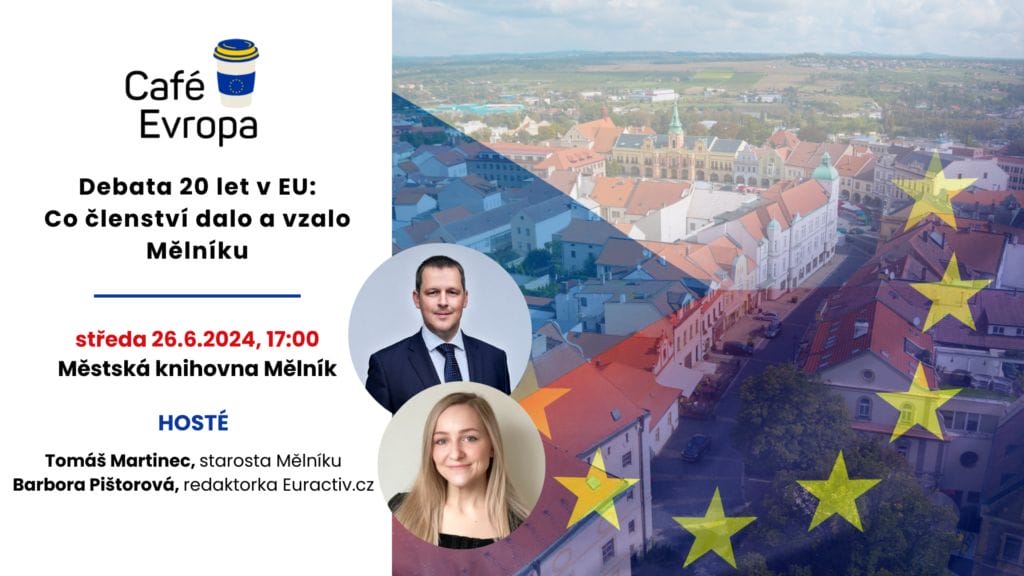
Café Evropa | 20 years in the EU: Benefits and drawbacks of the membership for Mělník
Come and join us for the latest in the Café Evropa series of regional debates! This time we will be in the city of Mělník. What do you think of the Czech Republic's 20 years in the EU? Are you worried about what the migration pact, the Green Deal will bring? Have EU subsidies helped the development of the city? What has the EU given and taken away from you? We want to hear from you!
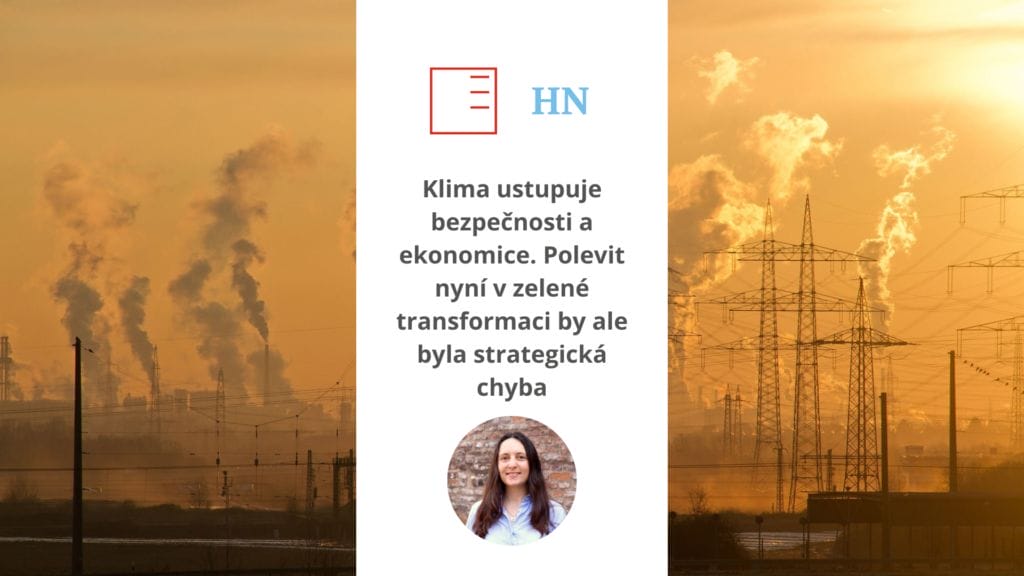
Hospodářské noviny | Climate is giving way to security and economy. However, easing off on green transformation now would be a strategic mistake
This year's elections to the European Parliament have sparked debates about continuing the European plan to reduce greenhouse gas emissions to net zero by 2050, despite recent events suggesting the need to reassess this plan. The election results did not signify as much of a setback for European green ambitions as anticipated. The priority of climate and environment is no longer as high among most Europeans as it was five years ago, reflecting current political and international challenges such as security, economic prosperity, and the competitiveness of European industry. Kateřina Davidova, a researcher at EUROPEUM Institute, wrote an opinion piece on this topic for Hospodářské noviny.
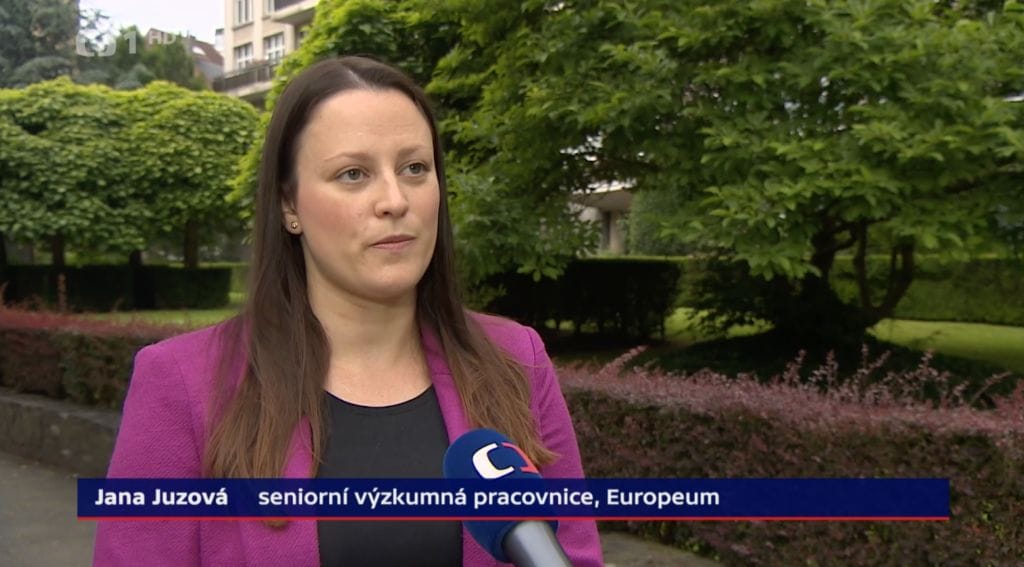
Události ČT | Accession talks between Ukraine and Moldova and the EU
The European Union has initiated accession talks with Ukraine and Moldova. This decision was preceded by two years of negotiations. The accession process is expected to take several years. Jana Juzová, a senior researcher at the EUROPEUM Institute, commented on the topic for Evening News on Czech Television.
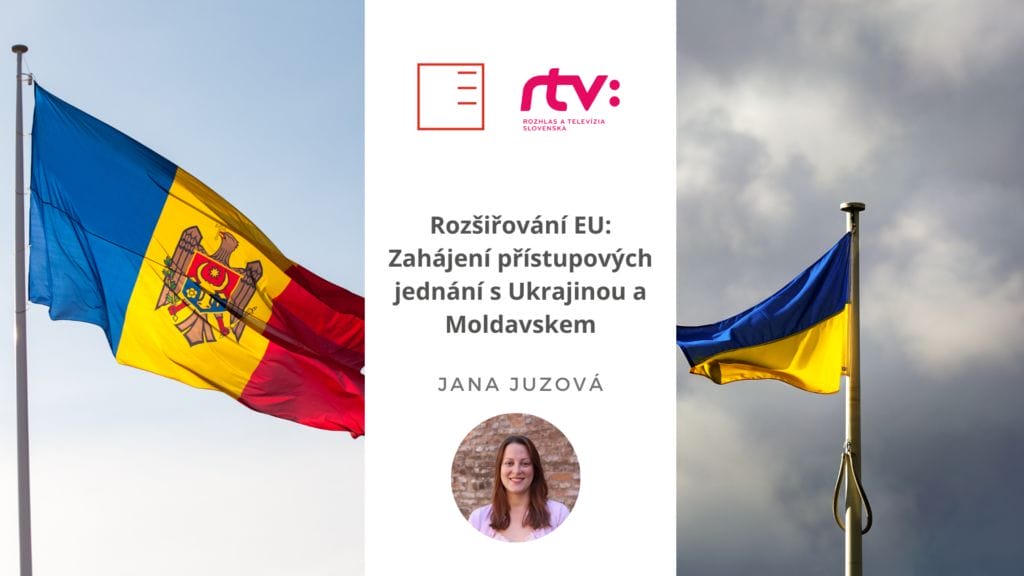
RTVS | EU Enlargement: Initiation of Accession Negotiations with Ukraine and Moldova
The European Union has initiated accession negotiations with Ukraine and Moldova. What does this mean for its inhabitants? How do the accession talks proceed? And what must the countries fulfill? Jana Juzová, a senior researcher at EUROPEUM Institute, comments for Slovak RTVS Television.
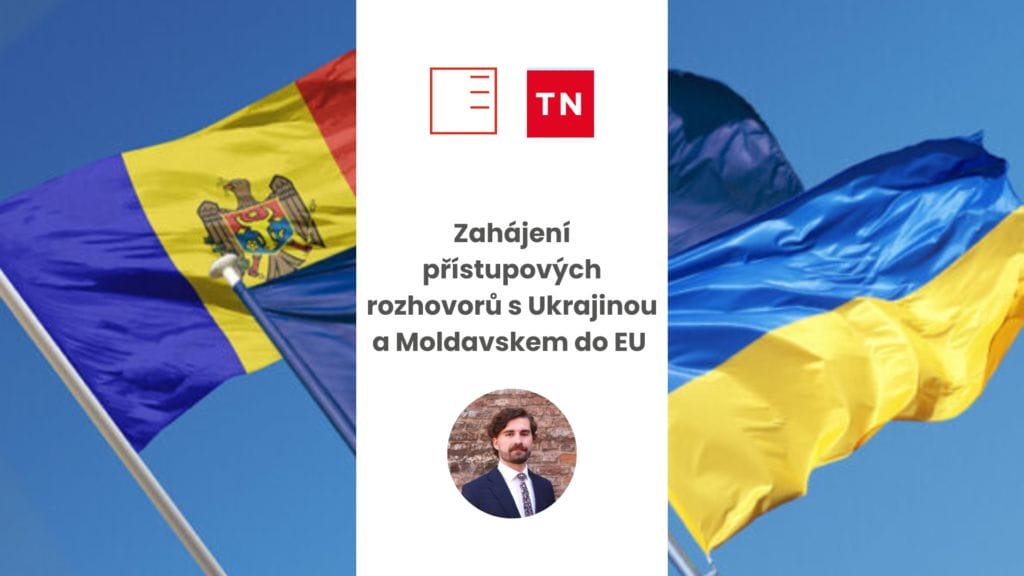
TN.cz | Ukraine and Moldova begin EU membership talks
In Luxembourg, formal accession negotiations with Ukraine and Moldova to the European Union have begun. Is this a significant progress towards their eventual EU membership? Which of these two countries has a stronger position? And how does the screening process unfold? Viktor Daněk, Deputy Director of EUROPEUM Institute, discussed these topics for TN.cz.
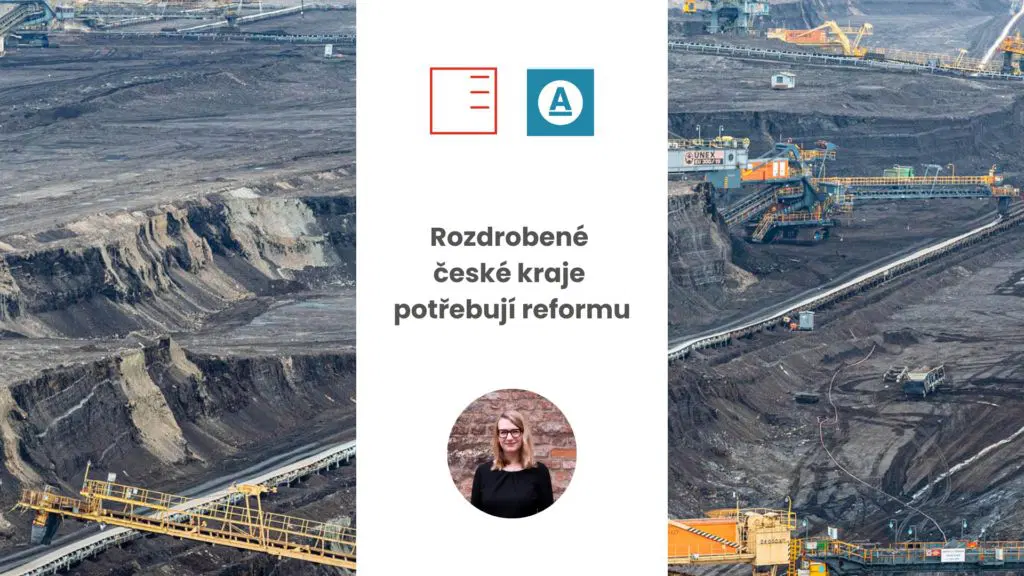
Aktuálně.cz | Fragmented Czech Regions Need Reform
In the autumn, regional council elections will be held. The existence of 14 regions in the Czech Republic, however, does not have a long tradition – they were only established in 2000, partly due to the anticipated entry into the European Union. This arrangement is now heavily criticized for their fragmentation, low and duplicative administrative capacities, and the associated negative impacts on the state budget. Klára Votavová, a researcher at EUROPEUM Institute, presents in her commentary on research on the capacities of the state and regions to draw from the Just Transition Fund, using the examples of the Karlovy Vary and Moravian-Silesian regions.
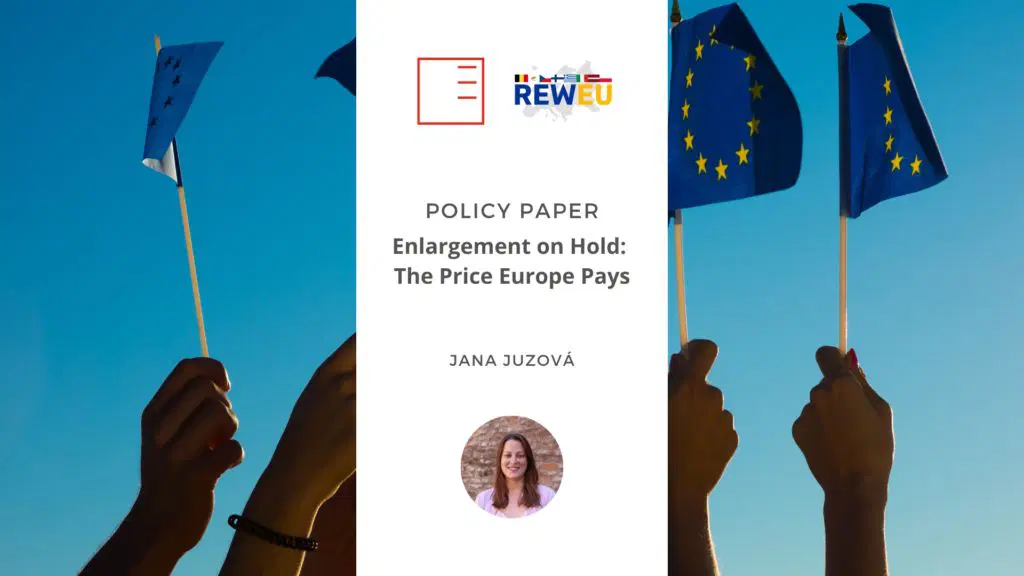
Policy Paper | Enlargement on Hold: The Price Europe Pays
How can the EU enlargement process regain its lost momentum? And how can we learn from previous rounds of enlargement? These questions are answered by a group of authors together with EUROPEUM Institute senior researcher Jana Juzová in a new publication within the REWEU project.
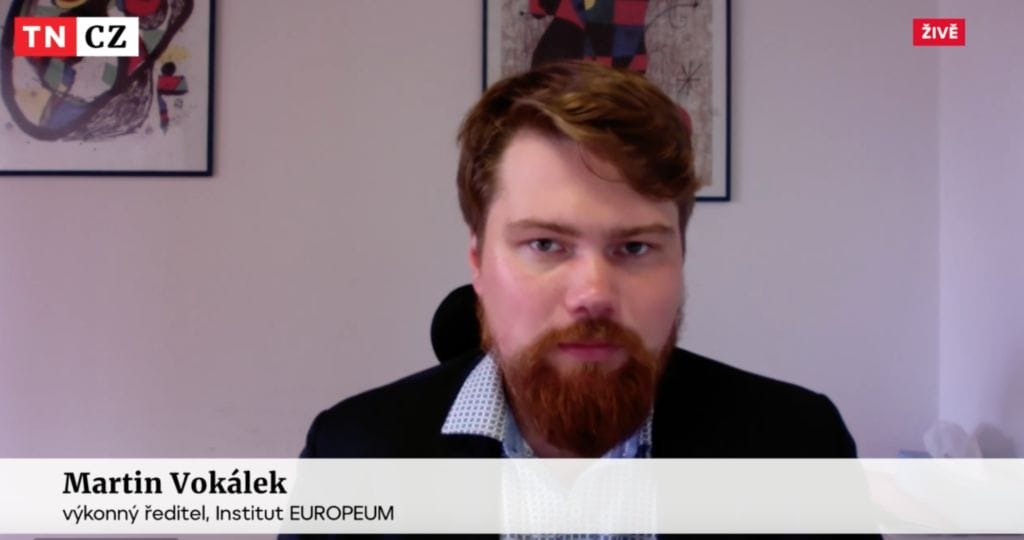
TN Live | EU has approved further sanctions. They target the Russian industry and energy sector
European Union has approved its fourteenth package of sanctions against Russia, specifically targeting 116 additional individuals. Whom will the new package of sanctions affect the most? How effective have previous packages been so far? Martin Vokálek, Executive Director of EUROPEUM Institute, answered these questions live for TN Live.
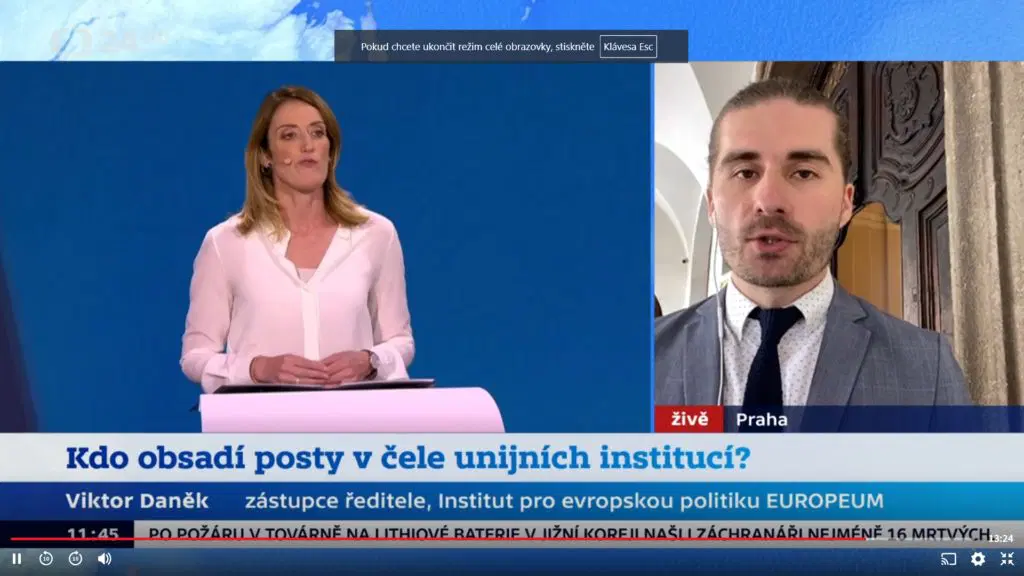
ČT24 | Negotiations on the top EU positions
Two weeks after the publication of the European Parliament election results, it is unclear whether Ursula von der Leyen will remain at the head of the European Commission and the EPP party, which is expected to vote for her confirmation by the European Parliament, is weakening. The Renew Europe party has also weakened, losing its MEP's from Czech ANO movement. Viktor Daněk, deputy director of EUROPEUM Institute, commented for ČT24.
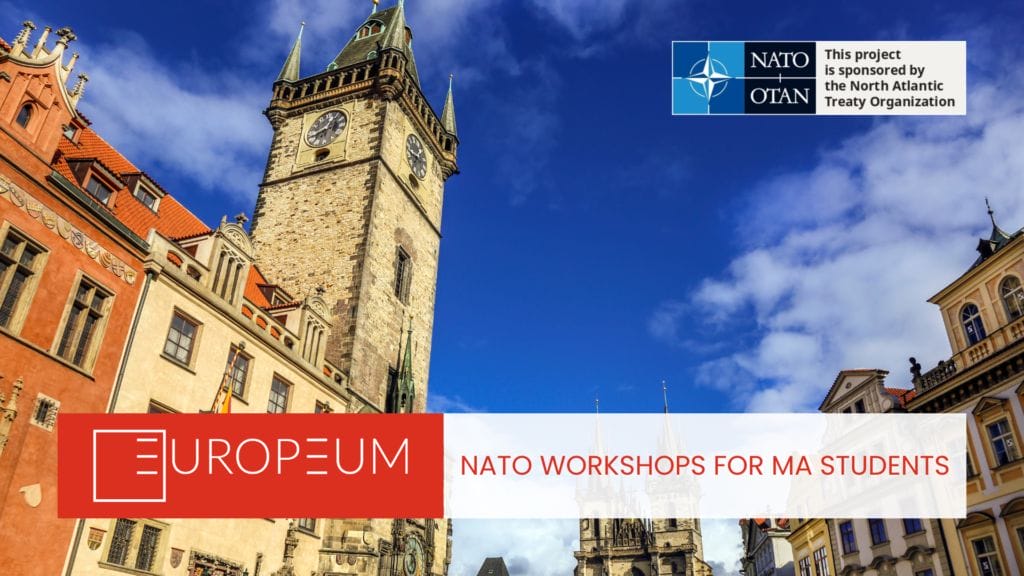
Call for Participants: Euro-Atlantic Future of Ukraine and Eastern Europe: Views from Visegrad
Are you a Master’s student from the Czech Republic, Hungary, Poland, Slovakia keen on international relations and NATO's strategic future? Join our workshop series to engage with experts, present your views on NATO’s Open-Door policy, and network with peers from the region.
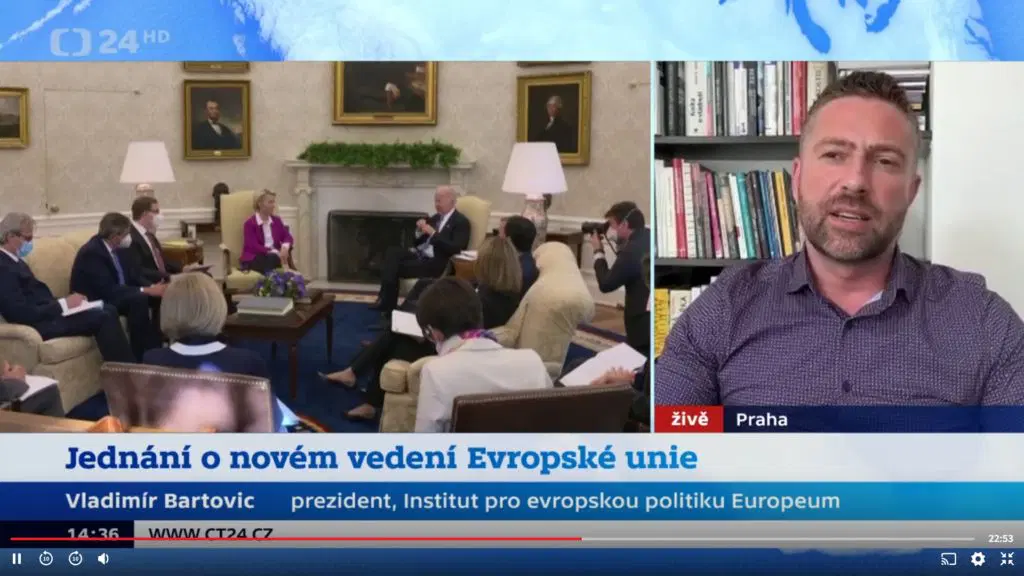
ČT24 | Negotiations on the new leadership of the European Union
Negotiations on the EU leadership positions will continue next week. On Thursday, leaders and presidents are due to make their final decision at a summit in Brussels. Vladimír Bartovic, President of EUROPEUM Institute, commented on whether Ursula von der Leyen will defend her post as President of the European Commission.
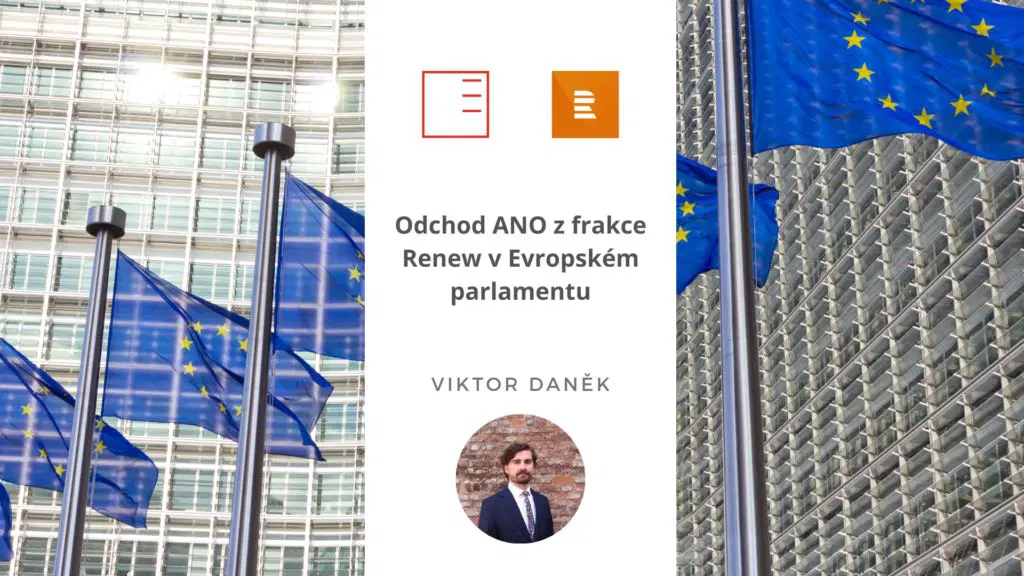
ČRo Plus | Withdrawal of ANO from the Renew Europe party in the European Parliament
The ANO political movement will withdraw from the liberal Renew Europe faction in the European Parliament, as it says it cannot promote the programme it went into the European elections with. Viktor Daněk, deputy director of the EUROPEUM Institute, commented on this.